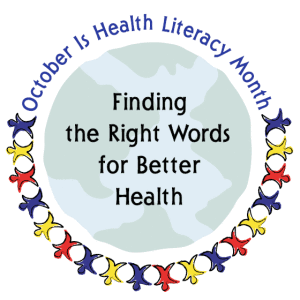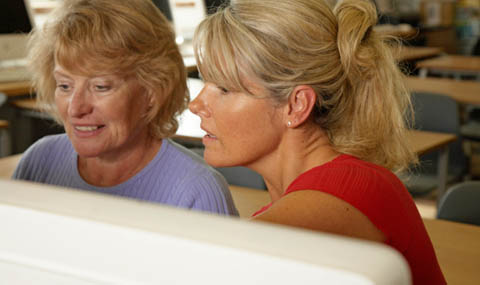 Discover ways your library can encourage health literacy in your community
Discover ways your library can encourage health literacy in your community
Health literacy is bigger than any one person, profession or program. It takes all of us working together to improve health understanding. That includes those who are working at, overseeing and visiting public libraries.
I have been focused on health literacy for many years, bringing to this field my experience as a clinician, training as an educator and perspective as a patient. From all these perspectives it is clear there is much work yet to do when it comes to clearly communicating about health. Your library can help. Here are some ways:
For those working at public libraries:
- You are at the very center of the intersection of health information and the public’s desire to learn. Your skills are key to helping patrons find relevant, readable, credible, up-to-date health resources. I hope your library offers an array of materials, including some that do not require a lot of reading or advanced computer skills. These can include resources such as videos, pictures, models and interactive games.
- You also might help patrons find the right words for health questions and searches. An example is helping patrons bridge the gap between complex, multisyllabic, technical terms (like “myocardial infarction”) with more common and simpler lay words (such as “heart attack”).
For those overseeing libraries:
- Ideally you already are, or soon will be, a “health literacy champion.” As a well-known and well-respected leader, you can help by introducing peers, staff and others to health literacy. Share credible data and compelling stories about why health literacy matters. Highlight how health literacy can help improve health outcomes and reduce medical costs when patients and their caregivers truly understand a new diagnosis, self-care plan and emergency instructions. You might also make clear potential costs to individuals and communities when this type of understanding does not occur.
- Consider joining or starting a regional coalition of health literacy advocates. This is a great way to broaden the message, perhaps by partnering with healthcare facilities, community services, local and state government, literacy programs, schools and business leaders. Decide what goals to address now, or later. One could be to host a Health Literacy Month event, teaching others about the value of health understanding.
For those visiting libraries:
- We likely all have had the experience of being a patient or caring for someone who is. Sometimes this experience can be frustrating, such as when a clinician uses unfamiliar, technical words and doesn’t take time to explain what those words mean. Happily, sometimes our healthcare experiences are good, like when a clinician shows (not just tells us) how to use a new medical device. Even better is when this clinician watches while we try using this device on our own. These experiences, both bad and good, can serve as important reminders about why health literacy matters.
- Learn ways to communicate clearly about your own health. One way is by bringing a list of questions to each medical appointment. Think ahead about which are most important. Along with my prioritized list, I bring a pen to write down the clinician’s answers. Another communication tip is to confirm you correctly understand directions. For instance, if the clinician says to take this new medicine with food, find out exactly what that means. Should you eat a big meal first and then take the pill? Or is it enough to nibble on a cracker when taking the medicine? I confirm directions by saying something to the clinician like, “I want to make sure I understood. When you said to take this medicine with food, does this mean that I should _____________?”
- Since this article is about public libraries, another tip is to learn all you want to know about your health situation. But please don’t feel like you have to study everything. A few years ago I was being treated for something serious (happily, I’m fine now). I surprised even myself by not wanting to read more about my diagnosis. But a friend dealt with her illness quite differently and every night found comfort in doing lots of research. My lesson learned is that there is no one “right” or “wrong” way when it comes to learning about health. And really, that’s fine.
Health Literacy Month is a time for organizations and individuals to promote the importance of understandable health information. This annual, worldwide, awareness-raising event has been going strong ever since Helen Osborne founded it in 1999. Health Literacy Month is now brought to you in collaboration with the Institute for Healthcare Advancement (IHA).
To learn more and for more health literacy resources for your library, go to www.healthliteracymonth.org.
Recognized as an expert in health literacy, Helen Osborne M.Ed., OTR/L, helps others communicate health information in ways that patients, caregivers and the public can understand. Osborne is president of Health Literacy Consulting, founder of Health Literacy Month and host of the podcast series “Health Literacy Out Loud.” Osborne is also author of the award-winning book Health Literacy from A to Z: Practical Ways to Communicate Your Health Message, Second Edition. To learn more about her work and background, go to www.healthliteracy.com.
Reprinted from WebJunction


